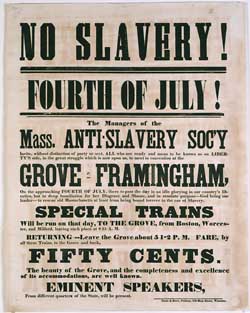All that I have given up to this let them serve as examples of the way in which the Connaught peasant puts his love-thoughts into song and verse, whether it be hope or despair, grief or joy, that affect him. (147)
In these final lines of the book, the reader is offered Hyde’s selection of songs as a faithful and complete insight into vernacular Connacht song about the theme of love. Moreover, Hyde suggests that in reading this anthology one achieves a good degree of familiarity with an idealized, essentially native ‘Connaught peasant’.
Although speakers in the songs are variously male and female, and the reasons for separation from absent lovers differ, the experience of love is fairly uniform throughout. It is a sore experience of unrealized desire. That scenario produces a pronouncedly virtuous image of the ‘Connaught peasant’ for a number of reasons.
The reader encounters deep loyalty where admiration is unstinted by forbiddance of love because of emigration, lack of requital, or death. ‘Úna Bhán,’ for example, is preceded by a long passage explaining how deeply a bereaved lover missed the fair Úna after, until he himself passed away. Also, Hyde’s anthology is particularly rich in its examples of similes drawn from the natural world. See ‘my love is of the colour of the blackberries’ (5) in ‘If I Were to Go West’, ‘I would not think the voice of a thrush more sweet’ (27) in ‘Long I Am Going,’ and ‘My love is like the blossom of the sloe on the brown blackthorn’ (31) in ‘An Droighneán Donn’. In the vivid rendering of these images, the beauty of the desired lover is stressed, and the delicate sensibility of the speaker is inherently implied. The Connaught peasant is thoroughly valorized as a result.
Accounting for consistencies among what anthologies include, and among what they exclude, can highlight their organizing agenda. One obvious example in the area of Irish Studies is the Field Day Anthology controversy, detailed in depth by Caitríona Crowe in The Dublin Review: https://thedublinreview.com/article/testimony-to-a-flowering/
In the case of Hyde’s Love Songs, consistencies among excluded material strengthen our perception of how actively he sought to contrive an estimable image of the Connaught peasant. Though Hyde claims his selection is emblematic of the love-thought of that idealized personage, he does not provide any examples of la chanson de la malmariée. This variety of song is so widespread that Seán Ó Tuama, who was the principal authority on the theme of love in Irish folksong, included it as one of five major genres in his article ‘Love in Irish Folksong’ (in the book Repossessions: Selected Essays on the Irish Literary Heritage. Such songs are an expression of grief by a young woman unhappily married to an elderly man.
If we are to view the songs anthologized by Hyde in a broader context of Connacht songs about love, an awareness of the chanson de la malmariéé is required. Faoi Rothaí na Gréine (1999) is a relatively recently published collection of Connacht songs. The collecting work was done in Galway between 1927 and 1932 by Máirtín Ó Cadhain, and latterly edited by Professor Ríonach Uí Ógáin. ‘An Droigheán Donn’, ‘Úna Bhán’, and ‘Mal Dubh an Ghleanna’ are common to Faoi Rothaí na Gréine and Love Songs of Connacht. The inclusion in the former of two famous songs of the malmariée genre, ‘Dar Mo Mhóide Ní Phósfainn Thú’ (I Swear I Wouldn’t Marry You), and ‘Amhrán an Tae’ (The Tea Song) demonstrate the strong presence of that genre in the ‘love-thought’ of vernacular Connacht song.
This way of framing discussion of Love Songs of Connacht invites close interrogation of Hyde’s biases. The choice of material for inclusion and exclusion is ideologically cohesive, to the specific end of creating a valorous image of the idealized native peasant. In my M.A. thesis, I might further refine the line of argument pursued in this annotation, and use it as the basis on which to build a discussion of Hyde’s particular ideological motivations.
